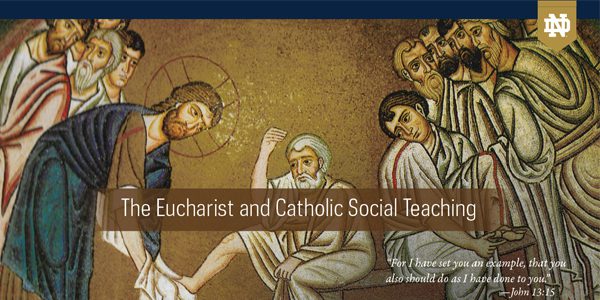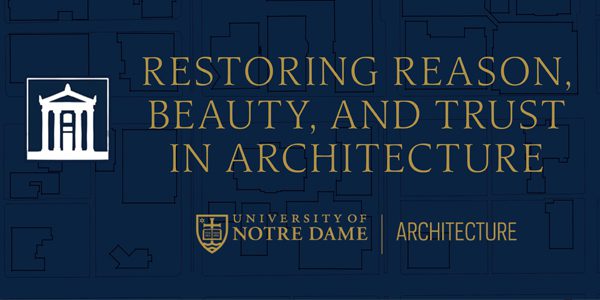The Church in Africa – The Future of the Catholic Church in Africa
Subscribe to the ThinkND podcast on Apple, Spotify, or Google.
Featured Speakers:
- Rev. Paul Kollman, C.S.C. ’84, ’90 M.Div., Associate Professor, Theology
The final event of The Church in Africa series featured Rev. Paul Kollman, C.S.C., an Associate Professor of Theology at the University of Notre Dame, and Sister Edelquine Shivachi, a sister with the Little Sisters of Saint Francis in Kenya and a current Ph.D. student with the World Religions World Church program in the Department of Theology at the University of Notre Dame. While the previous two events have focused on the past and present of the Church in Africa, this final session focused on its future. The speakers discussed topics such as the role of women within African society, the duty of African clergy to promote the faith and ensure access to education and healthcare, and Sr. Shivachi’s experiences as a nun in Kenya.
Fr. Kollman began the session by asking Sr. Shivachi to recount some of her experiences growing up in Africa and later becoming a nun with the Little Sisters of Saint Francis. She answered by sharing her passion for the religious life which she has had from a young age. She wanted to be a sister since elementary school and to be blessed with the opportunity to meet many people through her line of work. She then discussed her specific congregation and the work they have done in Kenya. The foundress of her congregation founded schools and hospitals, working with the materially and spiritually suffering. She had a wider vision for human dignity, embodying the values that every nun within her congregation now strives for. Discussing another woman who has had an impact on African Christianity, Nobel Peace Prize winning Wangari Maathai, Sr. Shivachi again expressed her delight with women taking leadership roles to promote justice and equality in Africa. Wangari Maathai argued for the increased impact of ecological crises on women due to their responsibility to care for their families. She concluded by emphasizing the importance of serving those on the periphery of society and treating them the way that God would.
The speakers then moved to discuss the role of the African church within the society and political landscape of Africa. Throughout Africa, a large percentage of education comes from Catholic institutions, often those founded by members of clergy. Sr. Shivachi expressed her desire for more women to study theology in Kenya in order to provide an example for younger girls of women who have been successful in the discipline. Many prominent political leaders throughout Africa are Catholic, giving the mission of the Catholic Church an opportunity to found many schools, hospitals, and other service organizations for the people of Kenya. Sr. Shivachi supported the work of these individuals, but warned that, in addition to constructing these institutions, they must be accessible to the poor. Too many mission schools and hospitals are created in Africa but carry high price tags that prevent the vulnerable of society from accessing them.
The final segment of the series focused on the role of the African Church within the global Catholic Church. Sr. Shivachi identified that the Catholic Church in Africa must learn to give more to the global Church rather than simply expecting the gifts of Catholics from other countries. She admired the giving nature of American Catholics and their love for spiritual practices and the saints. She emphasized that the African Church has a lot to give, its members must simply step up to the plate. The event concluded with questions to Sr. Shivachi from participants. She addressed questions about her experiences as a missionary from Africa, the future of ecumenical relations in Kenya and the obstacles to growth of the Catholic Church in Kenya. Participants discussed the session’s content in breakout rooms before Fr. Kollman completed the series.
- “Being religious is a call to embrace everybody.” (Sr. Edelquine Shivachi, 9:43)
- “We must remember that we are created by God and we must not put ourselves at the center, we must decentralize ourselves and have God be in the center. If we are in the center, we will be misusing the creation, see other people as objects to use, see them as less important than us. Augustine says that is pride. Pope Francis calls it intensive anthropocentrism.” (Sr. Edelquine Shivachi, 16:43)
- Nobel Peace Prize winning activist Wangari Maathai asserted that ecological crisis causes social breakdown. She argued that disregard for the environment hurts women more because they are the ones responsible for feeding their families.
- The clergy in Africa are very educated, but few women study theology out of fear of unemployment. More women religious are being encouraged to pursue this realm of study and to encourage young girls to also do so. (20:48)
- Prominent Catholic leaders in Africa have the power to transform the country. They must both construct social institutions, such as schools and hospitals, and ensure that the poor have access to them. (25:14)
- “These days, the challenge is to encourage people to find spirituality that’s authentic to their life and that speaks to them of the friendship of Jesus plus also builds up the unity of the Church.” (Fr. Paul Kollman, 30:49)
- “The African Church has to learn how to give more instead of being given more. The people in America give a lot and support African charities with money, advice and missionaries, and that’s great.” (Sr. Edelquine Shivachi, 32:12)
- “African theologians giving their views and how they think about God working in Africa is very important.” (Sr. Edelquine Shivachi, 38:50)
- The most important aspect of the faith for Sr. Edelquine Shivachi is to rise up and take action. Show others who you are and what you do for the faith while glorifying God in the process. (40:20)
- “This is the role of a theologian: helping people to come out and talk about themselves but also to talk about their relationship with God.” (Sr. Edelquine Shivachi, 40:27)
- The African Church has a lot to give to the world. They have sent missionaries to many countries, of which Sr. Edelquine Shivachi is an example, plus are passionate about their faith and African liturgies. (41:51)
- “Until we pray, we will not make it.” (Sr. Edelquine Shivachi, 52:49)
Related Content
Eucharistic Abundance and Social Regeneration
In 2022, the United States Conference of Catholic Bishops (USCCB) announced that the Church in this country would undertake a Eucharistic Revival, as a way to bolster Catholics’...
View EventHow Cities Speak To Us
Professor Emily Talen joins the School of Architecture to share her work at The Urbanism Lab and its focal point at the University of Chicago for the study of the built...
View EventThe Black National Anthem & Parent’s Signing Off On Children Reading Black Books
In this week’s episode, Isaiah and Tykiera talk about some tweets about Black people that took Twitter by storm. They also talk about The Black National Anthem, Lift Every Voice...
watch video


